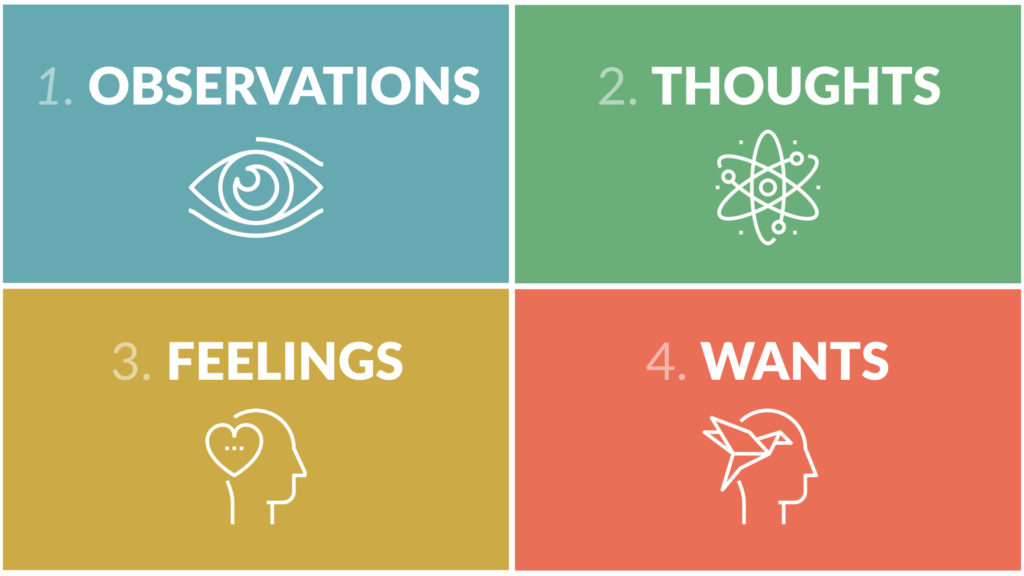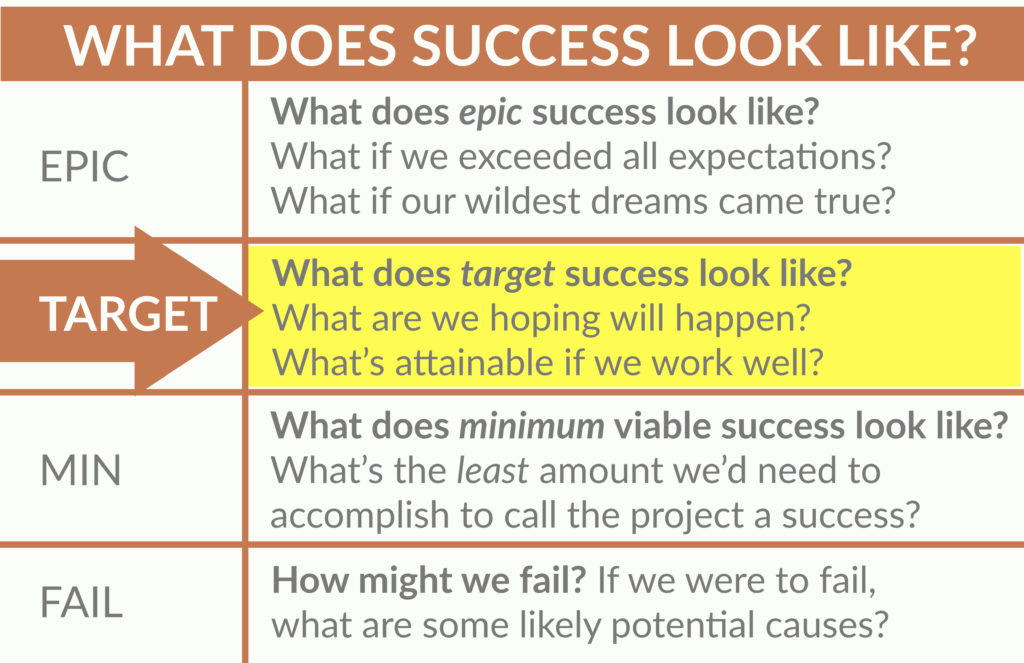How to say less and lead more
20 proven coaching questions for leaders, managers and teammates
Our friends at Raw Signal talk a lot about the difference between “coaching” and “mentoring.”
Mentoring is about telling people how you would do something. Coaching is about helping them generate their own insights and conclusions. Mentoring brings answers. Coaching brings great questions.
In leadership and teamwork, both of those practices are essential. But often a great question is infinitely more powerful than the best advice. Here’s some scientifically proven coaching questions that work.
The No-Brainer: “Can you say more about that?”
This one is so obvious that most of us rush right past it. The diamonds are always buried — so help tease them out! Resist the temptation to rush ahead. When people are sharing a problem or creative output with you, they’re not going to say the most important thing right away; they’re going to say it after the second or third invitation from you.
- “Can you say more about that?”
- “Tell me more about this.”
- “So, what am I looking at here? Can you say more about it?”
- “Hmm… say more?”

Mirror and validate: “Am I getting you?”
Before you move on, stop and paraphrase what you’ve heard. Ask if you’re getting it right.
- “So if I’m understanding you correctly, you’re saying x, y and z. Is that about right? Am I getting you?”
- “Is there more?”
- “That makes sense to me. It makes sense to me because x, y and z.”
This is crucial for making people feel seen and heard — which is essential if you want them to open up to new ideas or advice. Nobody does anything until they feel seen and heard first.
“What’s the biggest challenge you’re facing?”
Turn stale manager questions into better coaching questions like this (from IDEO):
- Instead of: “How’s it going?” Try: “What’s the biggest challenge you’re facing?”
- Instead of: “Why did you do x?” Try: “Help me understand x.” “Tell me more about x.”
- Instead of:“What went wrong here?” “Who screwed up here?” Try: “Is it clear what we’re doing and why?” (See: POP)
- Instead of: “Why don’t you just do x or y?” Try:“How can I help?
“What questions does this raise for you?”
For helping to tease out questions and insights in meetings:
- “How was that for you?”
- “What questions does this raise for you?” “What questions do you have?” “What are your questions for me?” (Not: “Any questions?”)
- “What did you notice / what jumped out at you?”
- “What surprised you?”
- “OK, we’ve said x, y and z (summarizing points). What have we missed?”
- “Who sees it differently?” (Instead of “does anyone disagree?”)
- “What’s something you learned or are taking away from this?”

Questions for addressing tensions or conflict
Start with the easier stuff first (observations / facts), and then gradually ladder up to feelings and wants.
- What did you observe? What happened? (Just the facts. What a video camera would record.)
- What are your thoughts about that? What do you think about that?
- How are you feeling about it? What feelings does it bring up for you?
- What do you want or need going forward?
Questions for projects and prioritizing
From Samantha Slade:
- How are you feeling about the project right now?
- What don’t you understand?
- What do you love?
- If you had no worries, what would be your #1 priority?
- Where are you most energized for working right now?
Questions for getting past blah blah to concrete ideas and proposals
- Can we feel a proposal emerging?
- Is there an action item here? Who’s going to do what, when, so that why?
- How could we make that challenge just a little bit easier going forward?
- What’s something we can try? What’s a small potential solution we can test out? What’s an experiment we can try?
- How might we make that even just 1% better? (“1% solutions” can be a good way to get unstuck.)
- Does this proposal feel safe enough to try? Can we give this a shot? Can we live with this? (This removes “stop” energy; it’s not about getting to a perfect proposal or plan. It’s just: is this safe enough to try?)
Questions for aligning around success
From Eugene Eric Kim:
- What would epic success look like? If we knocked it out of the park, what would that look like?
- What does target success look like? If we work hard and stay on task, what’s realistic?
- What does minimum success look like? What’s the least amount we’d need to achieve to call this a success?
- What does failure look like? What would it mean to fail here? If we were to fail, what might cause that? What’s likely to trip us up?

Questions to ask if you’re getting stuck
- How can we lower the bar?
- Can we make a prototype? Can we produce a quick draft or test?
- Who’s done this already? Can we ask them for advice?
Great staff retreat or icebreaker questions
- What’s one thing you wish your colleagues knew about you that they don’t know already? (from Jerry Colonna)
- What’s standing in the way of doing your best work ever? (From Aaron Dignan)

The 3 Archetypal Coaching Questions
Co-active Coach Rob Purdie once shared some advice he got from a colleague: there are exactly three universal questions in coaching. You may not use these exact words, but these are like universal archetypes you can endlessly rephrase and circle back to.
- What about this is important to you?
- What are you choosing?
- What are you experiencing as a result?
Why does circling through these three questions often spark breakthroughs?
Question 1: Why is this important to you? Why does this matter for you? Why does this resonate for you? Why is this so urgent for you? Tell me more about why this really matters to you. This is fundamental! You need to get underneath the problem to understand why it matters to them. This usually isn’t obvious, either to you or often even to them. Teasing that out is a tremendous act of service — and the key to getting anywhere.
Question 2: What are you choosing? What have you tried already? What decisions or choices are you making? What are you already doing?This reminds people that they have agency; that they are actively choosing strategies and responses, whether they’re consciously aware of it or not. Often in the face of a big long-standing problem or need, we forget this. We throw up our hands or adopt a position of learned helplessness. We need to be reminded of the choices we are actually making.
Question 3: What are you experiencing as a result? What effect is that having for you? How is that working for you? What are you getting as a result? This helps us become freshly aware of the consequences of our actions, and connect the dots between question 2 and question 3 — which is where the Yoda magic happens.
As for the best leaders, the people do not notice their existence.
Lao Tzu

What’s the best question you’ve been asked lately?
Or: what are your own favorite go-to coaching questions? Please share them with, me so I can add to this list below.
Leave a Reply